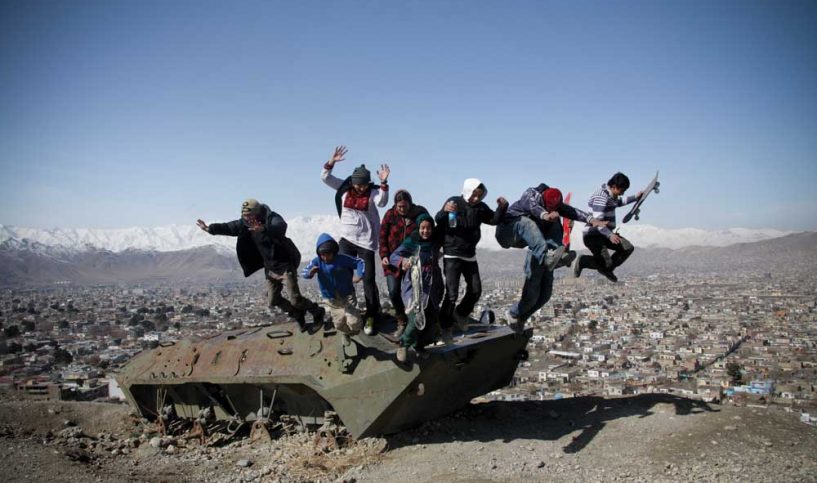Though the invention of skateboarding is shrouded in myth, it is known to have been seen in the streets of Southern California as early as the 1950s. These early skaters were surfers looking for a way to continue their sport on the streets; the boards resembled little more than 2X4 pieces of wood with roller skate wheels attached to the bottom. It would not be until two decades later that the sport began to resemble anything that we recognize today—the ‘Ollie’, the first airborne trick invented around this time—opened the door to the growth of this sport. Today, with numerous worldwide events, the skateboarding industry is a global one that continues to grow beyond any expectations.
As with all sports that mature as they gather a worldwide following, skateboarding has in recent years looked for ways to give back to the communities it serves. One of these great organizations is the project known as Skateistan, a nonprofit organization that uses skateboarding as a tool for empowerment. Started by Australian skateboarder Oliver Percovich after a 2007 trip to Kabul in which the local kids were all asking to be taught how to skateboard, the organization has tried to spread to larger aims as well. Skateistan is a non-profit whose aim is to “grow a sustainable organization that is recognized locally and globally for changing the lives of hundreds of thousands of youth through skateboarding and quality programs–creating leaders that change the world.”
Skateboarding in Afghanistan may seem a bizarre entrée for sport in the region. However, they believe it is uniquely positioned to aid kids and young girls in particular—another outlet for play. Since Afghan girls can’t ride a bike for example, but are permitted to skateboard, skating was perceived by the founders as a potential workable way to engage children in sport while respecting local culture as well. Still, skateboarding is just an entrée into whatever other academic adventures the children wish to pursue.
Skateistan’s development and aid programs work with growing numbers of marginalized youth through skateboarding by providing them with new opportunities in cross-cultural interaction, education, and personal empowerment programs. They have also expanded their skateboard-based development activities to include full-time programming for youth in new locations, including Cambodian youth in Phnom Penh, a state-of-the-art learning/skateboarding center in Mazar-e-Sharif, Northern Afghanistan, and a project for youth in Johannesburg, South Africa.
What began as a grassroots ‘Sport for Development’ project on the streets of Kabul in 2007 is now an award-winning, international NGO (Non-Governmental Organization) with 4 bases in three countries. They are also the first international development initiative to combine skateboarding with educational outcomes. Non-political, independent, and inclusive of all ethnicities, religions and social backgrounds, the group seeks only to provide opportunities for youth in sports and education. Currently they work with children ages 5-25. At present, 40% of the kids they work with are girls and 60% are low-income youth.
Tony Hawk, a Skateistan ambassador says, “Skateistan is the epitome of what skating is all about” and says that he “honestly share(s) in the excitement those kids feel!” On October 29, 2009, Skateistan completed construction of an all-inclusive skate park and educational facility on 5,428 square meters of land donated by the Afghan National Olympic Committee. The crew at Skateistan has also recently completed a book full of pictures and stories. This 320-page book illustrates with the entire story and would compliment any bookshelf. All the proceeds from the book go towards supporting Skateistan projects.
Learn more about Skateistan by reaching out at www.skateistan.org.








